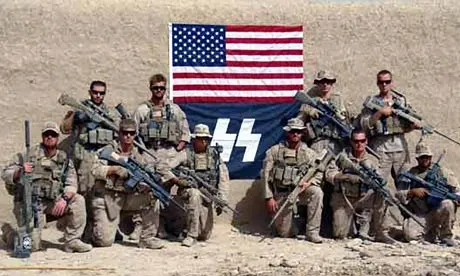Die Spinne - The "Fascist International"
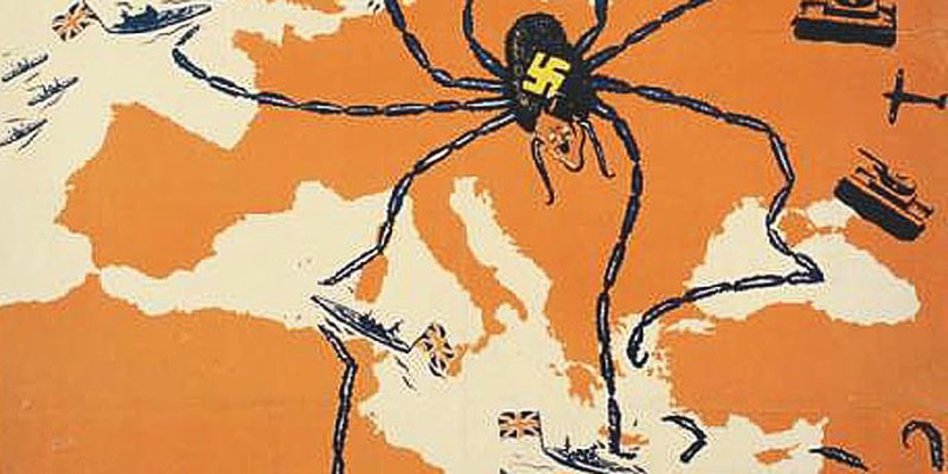
"An international directorship of strategic assault personnel that straddles the watershed between paramilitary operations carried out by troops in uniform & the political warfare which is conducted by civilian agents" - Otto Skorzeny
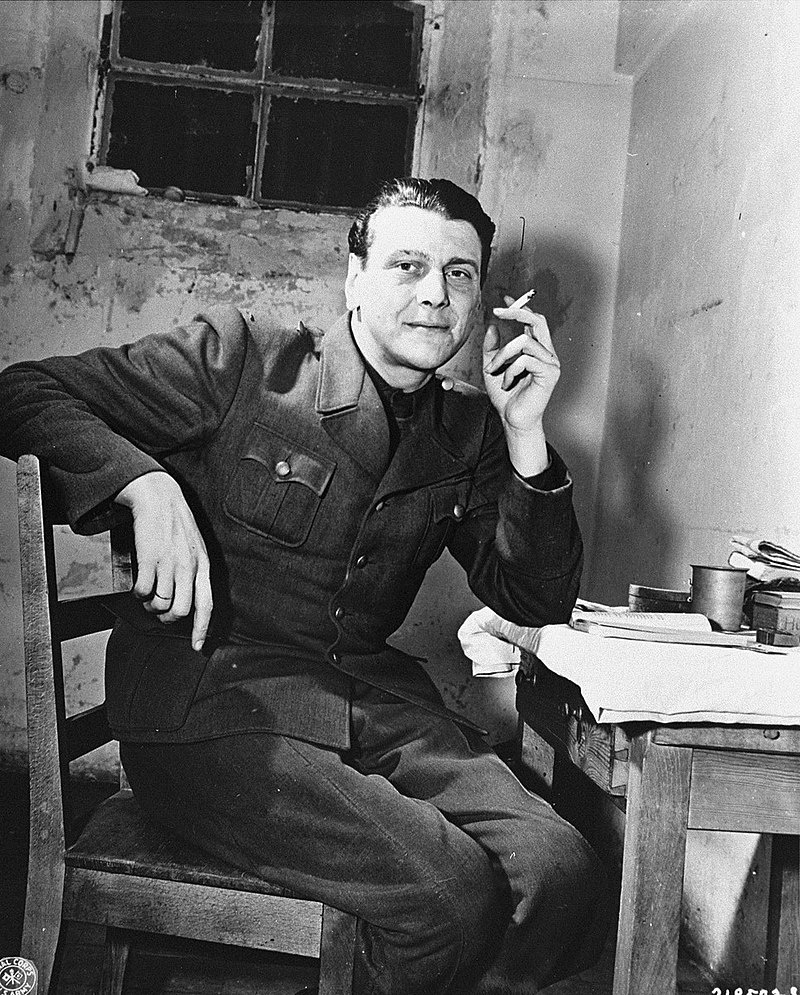
Die Spinne (German for "The Spider") was a post-World War II organisation thought to have helped certain Nazi war criminals escape justice. It was led in part by Otto Skorzeny, Hitler's commando chief, as well as Nazi intelligence officer Reinhard Gehlen. Die Spinne helped as many as 600 former SS men escape from Germany to Francoist Spain, Juan Peron's Argentina, Paraguay, Chile, Bolivia, the Middle East, and other countries. Die Spinne was established by Otto Skorzeny using aliases, and supported by either Nazi funds or Austrian Intelligence. Later, Skorzeny, Gehlen, and their network of collaborators had gained significant influence in parts of Europe and Latin America.
The "Fascist International"
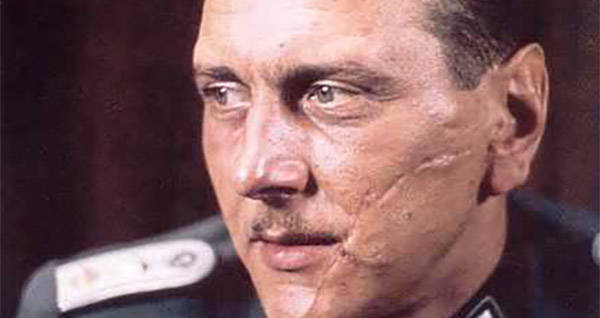
According to Infield, the idea for the Spinne network began in 1944 as Hitler's chief intelligence officer Reinhard Gehlen foresaw a possible downfall of the Third Reich due to Nazi military failures in Russia. From 1945 to 1950, Die Spinne's leader Skorzeny facilitated the escape of Nazi war criminals. Certain US military authorities allegedly knew of the escape, but took no action.
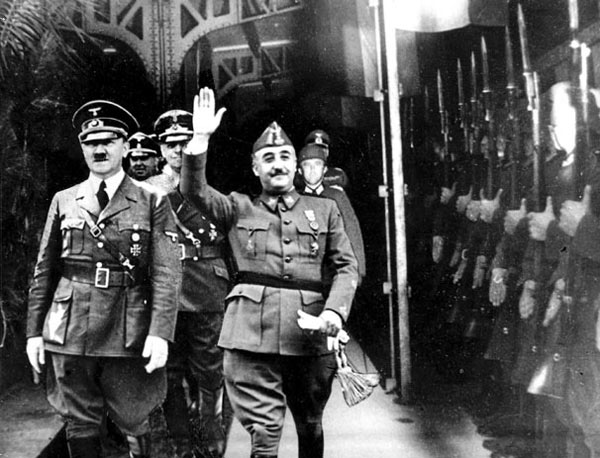
A coordinating office for international Die Spinne operations was established in Madrid by Skorzeny under the control of Francisco Franco. When a Die Spinne Nazi delegation visited Madrid in 1959, Franco stated, "Please regard Spain as your second Fatherland." Skorzeny used Die Spinne's resources to allow notorious Nazi concentration camp doctor Joseph Mengele to escape to Argentina in 1949. The Madrid office built up what was referred to as a sort of Fascist International. The German leadership also included Dr Hans Globke, who had written the official commentary on the Nuremberg Laws. Globke held the important position of Director of the German Chancellery from 1953–63, serving as adviser to Konrad Adenauer.
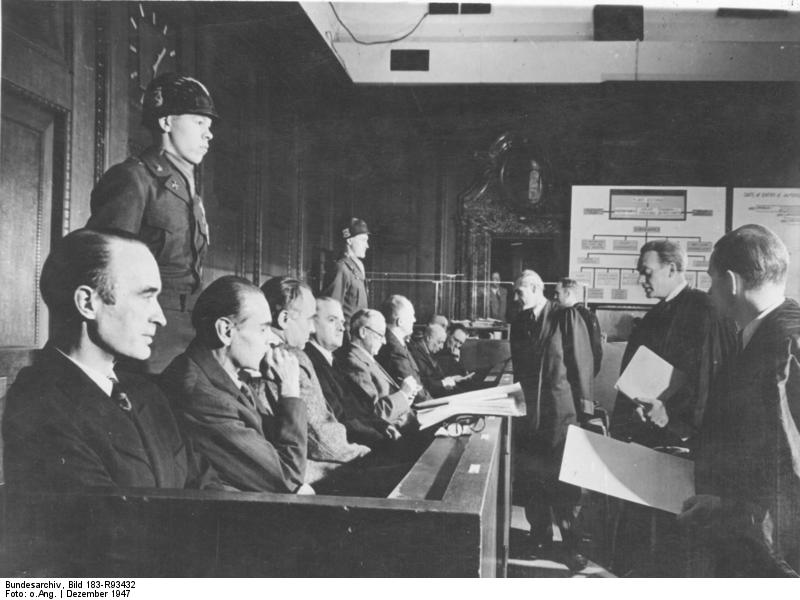
Skorzeny requested assistance from German industrialist tycoon Alfried Krupp, whose company had controlled 138 private concentration camps under the Third Reich; the assistance was granted in 1951. Skorzeny became Krupp's representative in industrial business ventures in Argentina, a country which harboured a strong pro-Nazi political element throughout World War II and afterwards, regardless of a nominal declaration of loyalty to the Allies as World War II ended. By the early 1980s Die Spinne had become influential in Argentina, Chile and Paraguay.
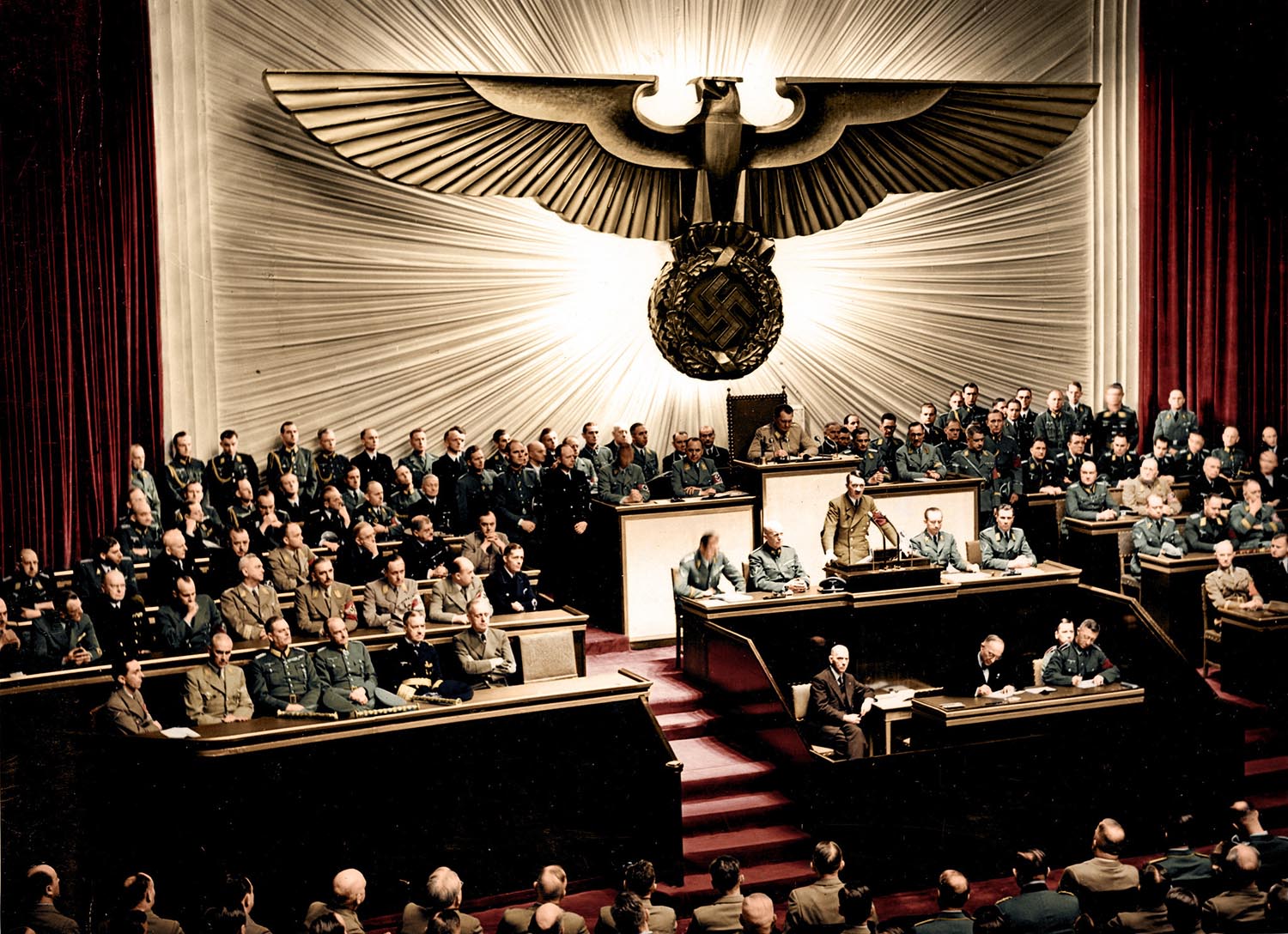
War Crimes investigator Simon Wiesenthal claimed Joseph Mengele had stayed at the notorious Colonia Dignidad Nazi colony in Chile in 1979, and ultimately found harbour in Paraguay until his death. As of the early 1980s, Die Spinne's Mengele was reported by Infield[24] to have been advising Stroessner's ethnic German Paraguayan police on how to reduce native Paraguayan Indians in the Chaco Region to slave labour. A wealthy, powerful post–World War II underground Nazi political contingent held sway in Argentina as of the late 1960s.
Otto Skorzeny (1908 – 1975)
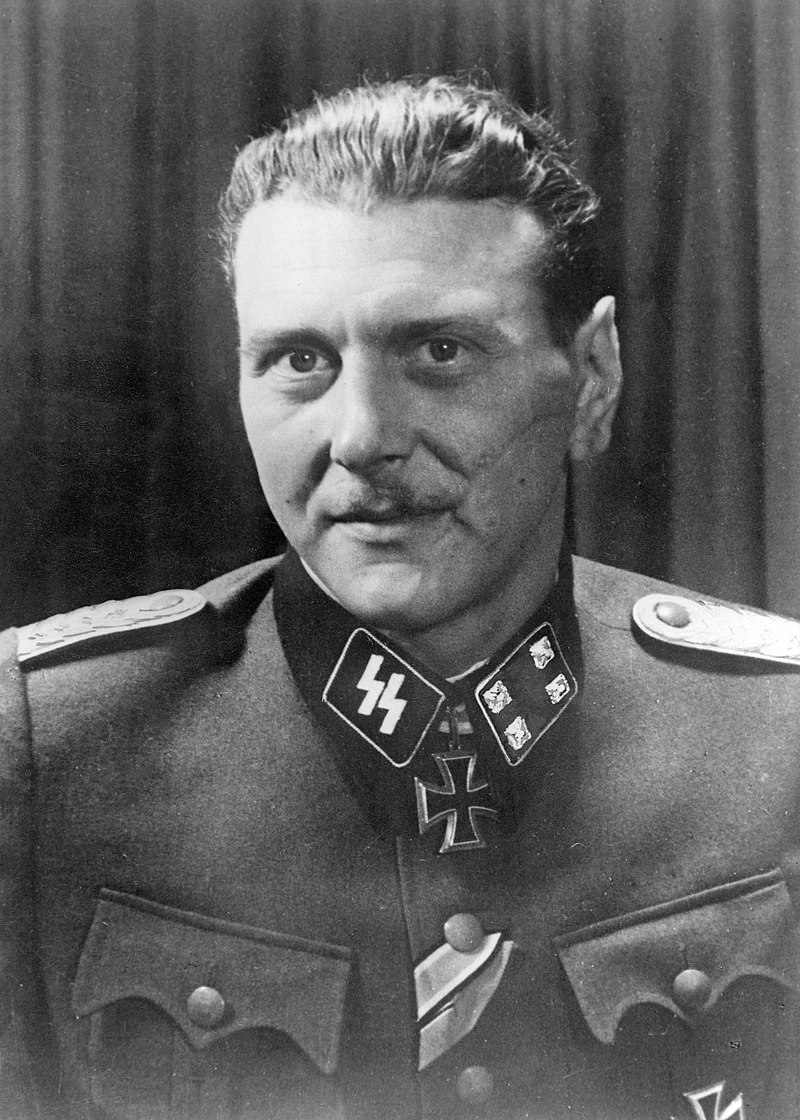
Otto Skorzeny was an Austrian-born SS-Obersturmbannführer (lieutenant colonel) in the Waffen-SS during World War II. During the war, he was involved in several operations, including the removal from power of Hungarian Regent Miklós Horthy and the rescue mission that freed Benito Mussolini from captivity. Skorzeny led Operation Greif, in which German soldiers infiltrated Allied lines by using their opponents' uniforms, equipment, language and customs. For this he was charged at the Dachau Military Tribunal with breaching the 1907 Hague Convention, but was acquitted after a former British SOE agent testified that he and his operatives had worn German uniforms behind enemy lines.
Other activities
In the 1960s, Skorzeny set up the Paladin Group, which he envisioned as "an international directorship of strategic assault personnel [that would] straddle the watershed between paramilitary operations carried out by troops in uniform and the political warfare which is conducted by civilian agents". Based near Alicante, Spain, the Paladin Group specialized in arming and training guerrillas. Some of its operatives were recruited by the Spanish Interior Ministry to wage a clandestine war against the terrorist group ETA. Skorzeny was a founder and an advisor to the leadership of the Spanish neo-Nazi group CEDADE, established in 1966.
Otto Skorzeny: The Nazi who Influenced ISIS (intpolicydigest)
“You cannot waste time on feinting and sidestepping. You must decide on your target and go in.” – Otto Skorzeny, Nazi Commando
The most feared nation in World War II was Nazi Germany. They had strategies incorporating new and refined tactics as well as a great arsenal of traditional, high-quality weapons to fight a new type of warfare they invented to conquer their neighbors. As the war started to end in 1945, some in Germany did not want to give up and instead, wanted to continue the war and sustain the Third Reich. One of the key people in developing a new type of warfare for Germany at the end of the war was Otto Skorzeny, a Nazi SS officer who did some very high-level work in leading commando-type raids as well as developing a new style of warfare.
Hans Globke (1898 – 1973)
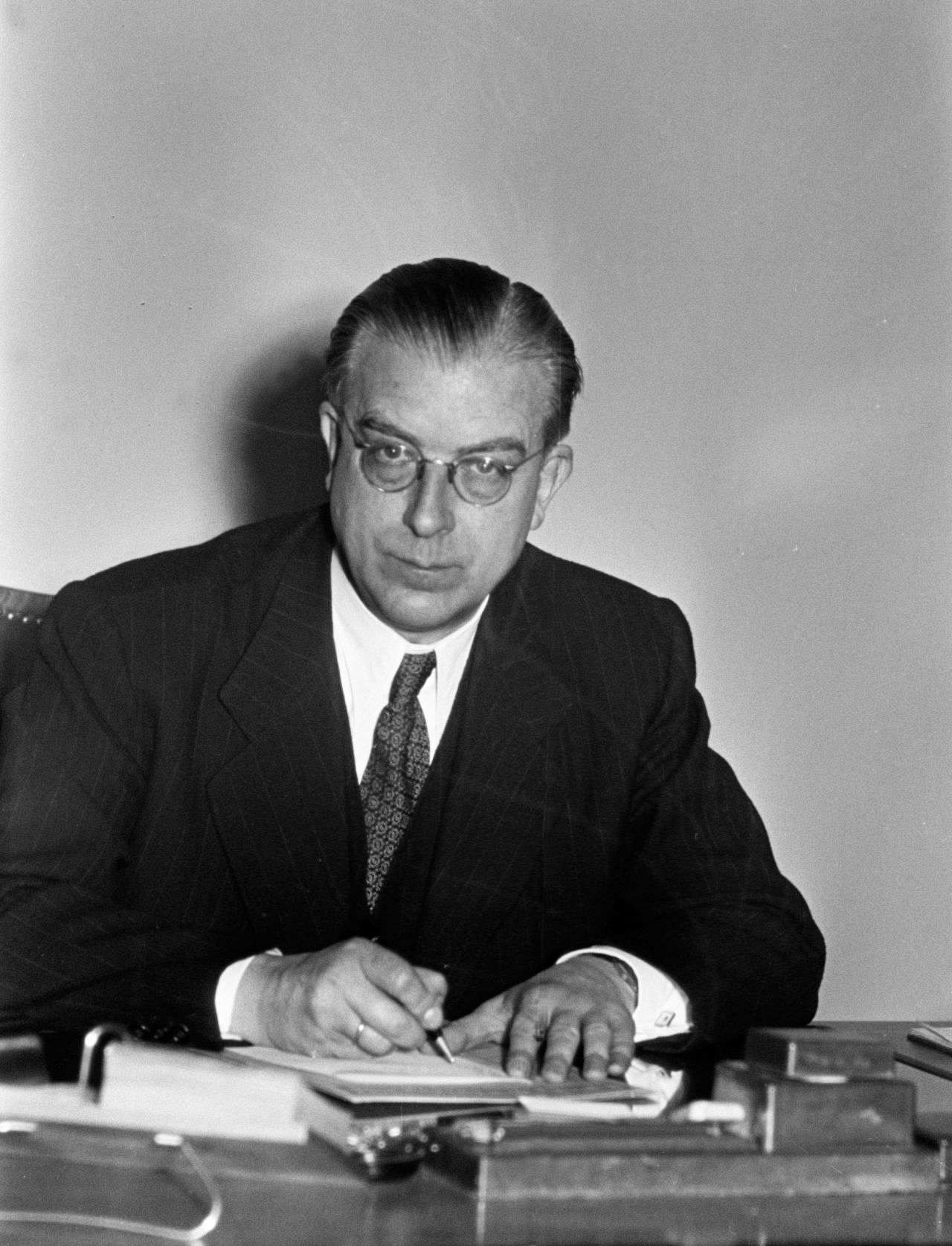
Hans Globke was a German lawyer. During World War II, Globke, a Ministerialdirigent in the Office for Jewish Affairs in the Ministry of the Interior, wrote a legal annotation on the anti-semitic Nuremberg Race Laws that did not express any objection to the discrimination against Jews, and placed the Nazi Party on a firmer legal ground, setting the path to The Holocaust. Globke later had a controversial career as Secretary of State and Chief of Staff of the West German Chancellery. In this role he was responsible for running the Chancellery, recommending the people who were appointed to roles in the government, coordinating the government's work, and for the establishment and oversight of the West German intelligence service and for all matters of national security.
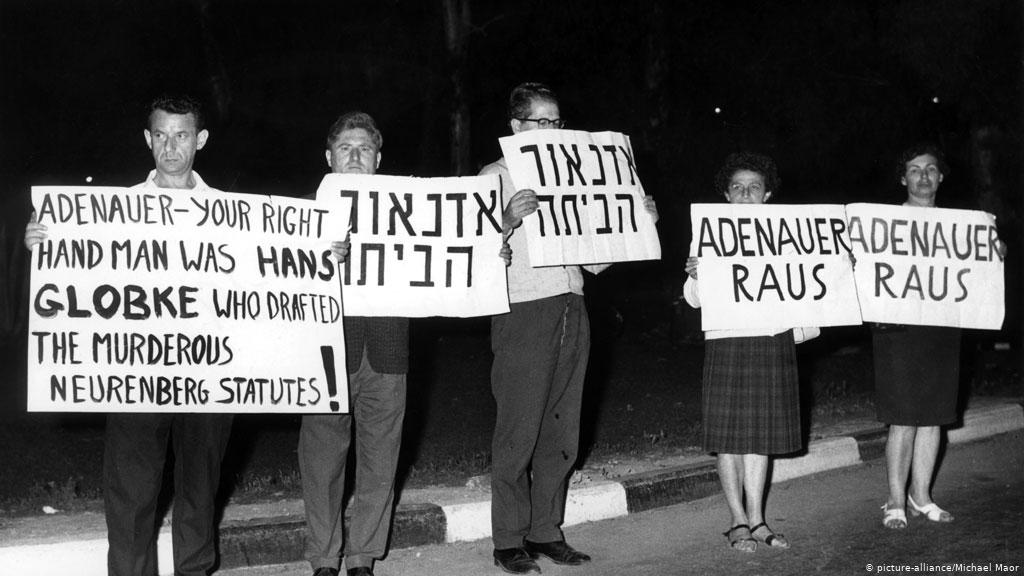
Globke became a powerful éminence grise of the West German government, and was widely regarded as one of most influential public officials in the government of Chancellor Konrad Adenauer. Globke had a major role in shaping the course and structure of the state and West Germany's alignment with the United States.
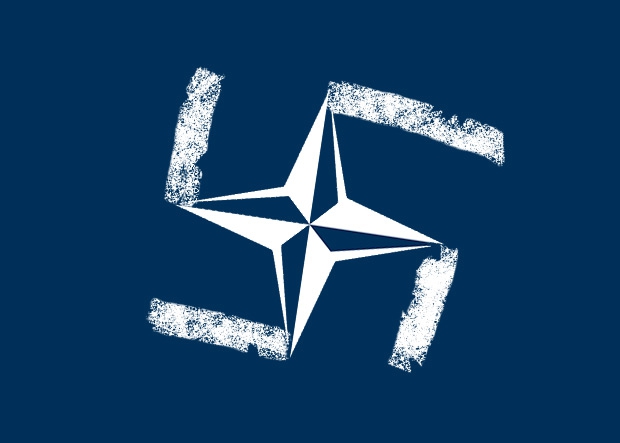
He was also instrumental in West Germany's anti-communist policies at the domestic and international level and in the western intelligence community, and was the German government's main liaison with NATO and other western intelligence services, especially the Central Intelligence Agency (CIA). During his lifetime, his role in the Nazi state was only partially known.
Related: Shadow of Montreux: A brief history of the Fascist International (Book)
Related: Holy Smoke and Mirrors - by David Guyatt (2000)
